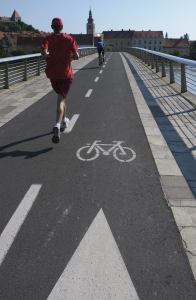By Scott Zahler, Attorney and David Wolf, Attorney
Published by Child Injury Lawyer Network

After two Georgia high school football players died during practices of 90-plus degree heat, authorities began to explore whether the hot weather contributed to the death of these athletes. The nation’s largest pediatrician group says that healthy children and teen athletes can play sports in hot, steamy weather, but only if precautions are taken.
In fact, new research shows that with adequate training, water intake, time-outs and emergency treatment available on the sidelines, healthy young athletes can play even in high heat and humidity — within reason. However, government data showed that 3,000 young teens were treated in the emergency room for non-fatal heat illnesses from sports or exercise from 2001 to 2009. In addition, throughout the last 13 years, 29 high school football players died from heat stroke, according to the American Football Coaches Association.
Dr. Michael Bergeron, a University of South Dakota sports medicine specialist, says that any child, if overworked in even 80 degree weather, can suffer sever injuries, if not death. He recommends that people be evaluated individually to see if they can play in hot weather.
When dealing with sports and hot temperatures, teams should have emergency plans with trained personnel and treatment available and policies for avoiding heat illness. Coaches should give kids about two weeks to adapt to preseason sessions, gradually increasing intensity and duration. They should also closely monitor more vulnerable kids, including those who are overweight or have diabetes. Coaches should make sure athletes are well-hydrated before practice or games. Specifically, kids aged 9-12, should drink about half a cup to a cup of water every 20 minutes during activities. Teens should drink 5 or 6 cups an hour during activity. Furthermore, sports drinks containing electrolytes and sodium should be offered during extra strenuous activity. Finally, teams and coaches should educate players and parents about signs of heat stress, including dizziness, muscle cramps, headaches and nausea; and kids with symptoms should be sidelined and treated immediately. Athletes should also be encouraged to report if teammates seem to be struggling.
For more information about heat stroke, athletes, symptoms, and preventions, see Sports in Heat—Ok With Precautions.
 Child Injury Lawyer Blog
Child Injury Lawyer Blog

